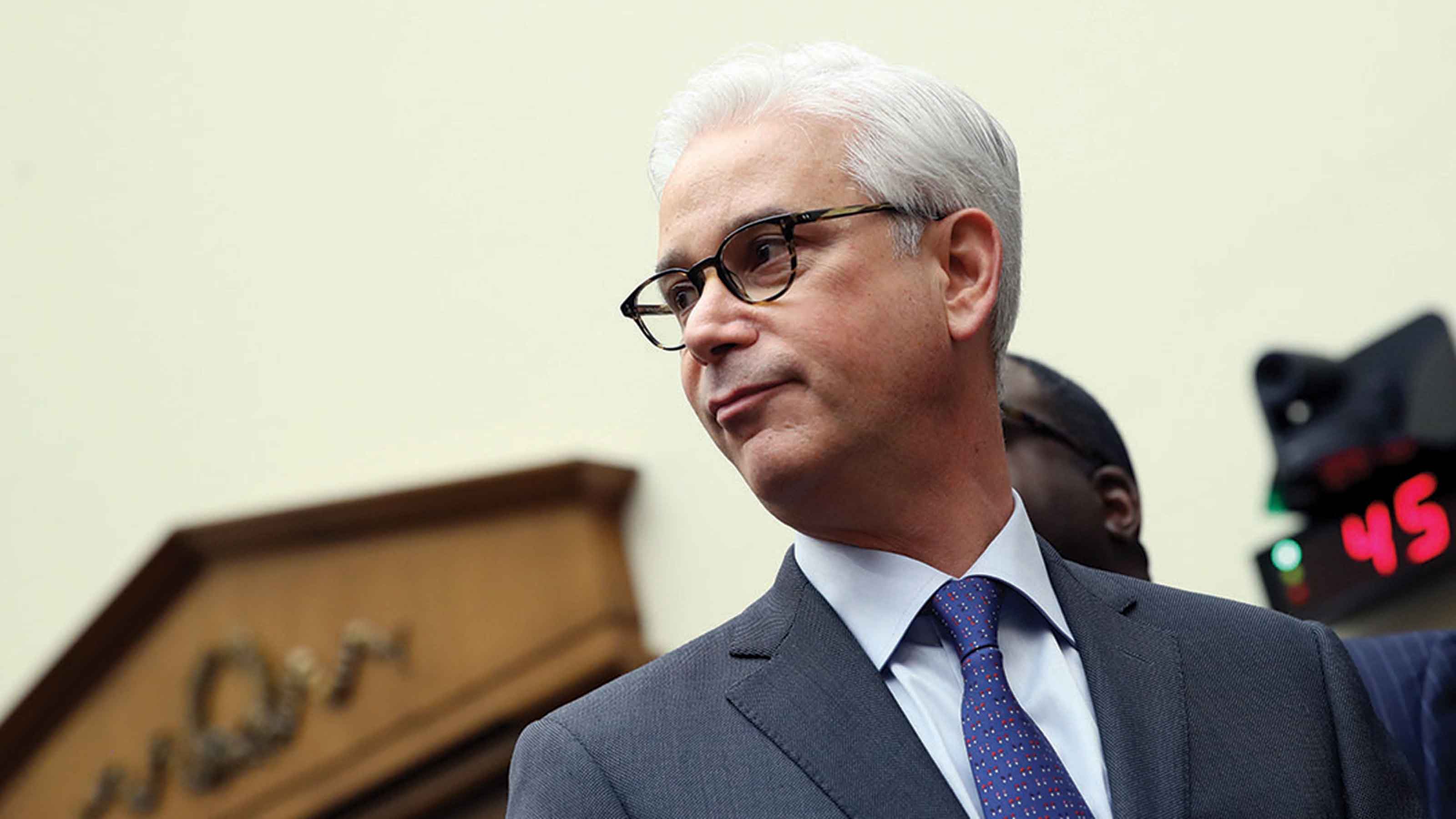Financial Crisis Probe Misses Mark
Politicians and others are stuck in the blame game, rather than working to fix fix root causes
Profit and prosper with the best of Kiplinger's advice on investing, taxes, retirement, personal finance and much more. Delivered daily. Enter your email in the box and click Sign Me Up.
You are now subscribed
Your newsletter sign-up was successful
Want to add more newsletters?

Delivered daily
Kiplinger Today
Profit and prosper with the best of Kiplinger's advice on investing, taxes, retirement, personal finance and much more delivered daily. Smart money moves start here.

Sent five days a week
Kiplinger A Step Ahead
Get practical help to make better financial decisions in your everyday life, from spending to savings on top deals.

Delivered daily
Kiplinger Closing Bell
Get today's biggest financial and investing headlines delivered to your inbox every day the U.S. stock market is open.

Sent twice a week
Kiplinger Adviser Intel
Financial pros across the country share best practices and fresh tactics to preserve and grow your wealth.

Delivered weekly
Kiplinger Tax Tips
Trim your federal and state tax bills with practical tax-planning and tax-cutting strategies.

Sent twice a week
Kiplinger Retirement Tips
Your twice-a-week guide to planning and enjoying a financially secure and richly rewarding retirement

Sent bimonthly.
Kiplinger Adviser Angle
Insights for advisers, wealth managers and other financial professionals.

Sent twice a week
Kiplinger Investing Weekly
Your twice-a-week roundup of promising stocks, funds, companies and industries you should consider, ones you should avoid, and why.

Sent weekly for six weeks
Kiplinger Invest for Retirement
Your step-by-step six-part series on how to invest for retirement, from devising a successful strategy to exactly which investments to choose.
Almost typical of Washington hearings when financial titans are called to task to publicly answer for a mess, last week’s Financial Crisis Inquiry Commission hearings quickly devolved into political theater with almost predictable video clips of Mr. Chairman vs. the Multimillionaire.
The commission would have done little good anyway. At least part of the reason behind its creation was to look tough and make witnesses at least squirm a bit for the cameras.
By the time it even comes out with its report Dec. 15, Congress will have already made up its mind on financial reform, rushing to meet the election calendar. The report won’t be as widely read as the 9/11 Commission Report or effect the same level of change as the Depression’s Pecora Commission.
From just $107.88 $24.99 for Kiplinger Personal Finance
Become a smarter, better informed investor. Subscribe from just $107.88 $24.99, plus get up to 4 Special Issues

Sign up for Kiplinger’s Free Newsletters
Profit and prosper with the best of expert advice on investing, taxes, retirement, personal finance and more - straight to your e-mail.
Profit and prosper with the best of expert advice - straight to your e-mail.
The bungled timing is emblematic of how, in the two years since Bear Stearns went under, thoughtful analysis has been sacrificed to a flurry of slapped together regulatory fixes and rushed out financial crisis best sellers. So it is especially disappointing that the commission is squandering the opportunity to provide a nonpartisan, clear-eyed assessment of what went wrong.
Witnesses at the hearing, which centered on the housing problems that led to bank failures, spent more time finger pointing than soul searching. Former Federal Reserve Chairman Alan Greenspan blamed mortgage giants Fannie Mae and Freddie Mac. Executives at those firms blamed the administration’s aggressive homeownership goals. Citibank executives offered sheepish mea culpas before turning their aim on regulators. The credit rating agencies were pretty much universally maligned.
Those tired explanations and half-truths simply rehash entrenched positions staked out by different sides early in the crisis. In reality, Fannie’s and Freddie’s shares of subprime mortgage originations actually started falling in 2003 as private lenders picked up the slack. The Community Reinvestment Act catches some blame, too, for easing credit too much in urban areas, but that doesn’t explain why there are so many foreclosures in the sprawling suburbs of Las Vegas and Phoenix.
Even more pernicious is the fact that all of last week’s well rehearsed testimony misses larger structural problems in the mortgage market. Tax policies encouraged not only homeownership, but also home equity lines of credit. Low interest rates fueled loose lending and adjustable rate mortgages, which George Mason University’s Todd Zywicki points to as the source of the first wave of foreclosures. Overly sweet incentives throughout the system meant that when home prices dropped from the stratosphere, homeowners with little equity to begin with and too pricey mortgages simply stopped paying the bills.
Sure, credit rating agencies, regulators and banks were foolish to rely on models that assumed home prices would forever go up. If last week’s hearings could have done any good, they would have reminded us that the stability of our financial system should not entirely rely on fallible human judgment. But the lessons will fall on deaf ears. Financial regulatory reform now making its way through Congress does little to address the structure of finance and instead simply hands error prone humans even more discretion.
Because the reform bill doesn’t get around the fact that bubbles are hard to spot and even harder to pop, it will not be very helpful in heading off the next crisis. At last week’s testimony, even Greenspan admitted he got things wrong 30% of the time. You’d get better odds at the Kentucky Derby. As housing economist Thomas Lawler reminded me, in 2005, when subprime mortgage originations peaked at $625 billion, “There were a lot of people who were not complete idiots, saying there wasn’t a bubble.”
Profit and prosper with the best of Kiplinger's advice on investing, taxes, retirement, personal finance and much more. Delivered daily. Enter your email in the box and click Sign Me Up.
-
 Dow Adds 1,206 Points to Top 50,000: Stock Market Today
Dow Adds 1,206 Points to Top 50,000: Stock Market TodayThe S&P 500 and Nasdaq also had strong finishes to a volatile week, with beaten-down tech stocks outperforming.
-
 Ask the Tax Editor: Federal Income Tax Deductions
Ask the Tax Editor: Federal Income Tax DeductionsAsk the Editor In this week's Ask the Editor Q&A, Joy Taylor answers questions on federal income tax deductions
-
 States With No-Fault Car Insurance Laws (and How No-Fault Car Insurance Works)
States With No-Fault Car Insurance Laws (and How No-Fault Car Insurance Works)A breakdown of the confusing rules around no-fault car insurance in every state where it exists.
-
 Airbnb Host Tells What It's Like
Airbnb Host Tells What It's LikeBusiness Costs & Regulation This Denver pharmacist began booking her ski condo a few months after the pandemic hit.
-
 Tough Times for a Family Business
Tough Times for a Family BusinessBusiness Costs & Regulation His dry-cleaning operation was rocked by the pandemic, but he is staying optimistic.
-
 IRS Gives Truckers a Tax Break in Response to the Colonial Pipeline Shutdown
IRS Gives Truckers a Tax Break in Response to the Colonial Pipeline ShutdownTax Breaks The tax penalty for using dyed diesel fuel for highway use is temporarily suspended.
-
 Reliving a Harlem Renaissance
Reliving a Harlem RenaissanceBusiness Costs & Regulation After a tough winter, two sisters look forward to reviving their restaurant’s business.
-
 Add a VPN to Surf the Internet Safely
Add a VPN to Surf the Internet SafelyTechnology To help you fight identity theft, consider adding a VPN.
-
 Stephanie Creary: Making the Case for Diversity on Corporate Boards
Stephanie Creary: Making the Case for Diversity on Corporate BoardsBusiness Costs & Regulation Adding underrepresented voices can improve a company’s bottom line.
-
 Kiplinger's 2020 Election Forecast
Kiplinger's 2020 Election ForecastPolitics For nearly a century, The Kiplinger Letter has forecasted the outcome of presidential elections to keep readers informed of what's coming and what it means for them. Here's our call for 2020.
-
 How We Lose When We Overlook Black Talent
How We Lose When We Overlook Black TalentBusiness Executives Comments from Wells Fargo CEO Charles Scharf (pictured) reflect a culture that tramples on clients’ trust and limits opportunities for people of color.